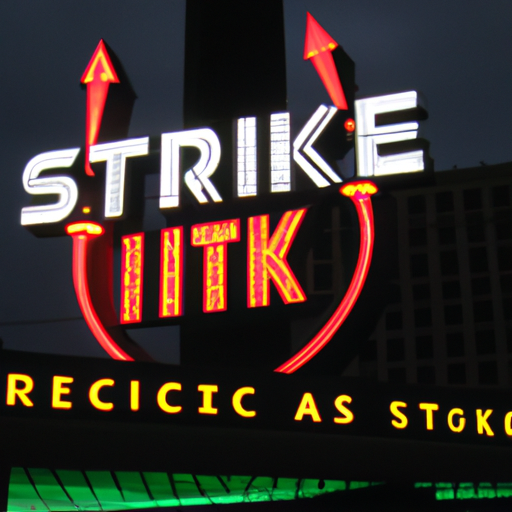In the heart of Detroit, the once bustling floors of the city’s iconic trio of casinos stand quieted by a chorus of determined workers, the clinking of slot machines now drowned out by their rallying cries for justice. As the strike forges into its second month, the stakes have never been higher, with resilience and resolve resting in the hands of those who once dealt cards, mixed cocktails, and welcomed patrons with open arms.
The venerable AFL-CIO President, Liz Shuler, took her stand alongside the strikers at MotorCity Casino, her voice slicing through the Michigan chill. “It’s time for Detroit casinos to quit gambling with their workers’ livelihoods,” she declared, a beacon of solidarity amidst the sea of picket signs.
Under the unforgiving gaze of casino cameras, the unfairness of the situation unspooled like a gambler’s bad luck. “Union casino workers kept this industry alive during the pandemic,” Shuler reminded the world, as recounted by Michigan Advance. She painted a stark picture of owners pocketing record profits, yet stubbornly holding back the compensation and care their employees so rightly deserved. “This is unjust, unfair and unethical,” she concluded, the gravity of her message echoing off the walls of the very institutions she challenged.
Meanwhile, amidst the backdrop of stalled negotiations teetering precariously over “core economic issues,” the Detroit Casino Council fervently awaits the owner’s retort to their latest economic proposition. Their words were clear, punctuated by the biting Detroit News report, “It’s absurd that Detroit’s profitable casino industry is forcing workers to stay out in the cold to protect their healthcare and achieve decent raises.”
The contrasts drawn with the glittering Vegas skyline couldn’t be starker—a city where casino companies reached a tentative truce with their workforce. “We’re dealing with some of the same players here, so why should Detroit be treated any differently?” argued the DCC, an appeal to parity that rang out loud and clear. “It’s time for Detroit’s casinos to give the people of Detroit the respect we are due.”
The MGM Grand Detroit sent an electronic message on the wind, a missive from spokesperson Jason Barczy, expressing hope for a forthcoming agreement. Prior offerings from the casino companies—reduced healthcare premiums and a wage increase—fell short in the eyes of the unions who stand firm for zero healthcare costs and a more substantial hike in wages.
The strike’s ignition on October 17 saw some 3,700 workers, from the MotorCity Casino to MGM Grand Detroit and Hollywood Casino, make their bold exit. Remaining services, now cut to the bone, dimmed the usual allure of these entertainment palaces.
The impact reverberated through the city’s revenue stream, a tangible 18.3% slump as reported by the Michigan Gaming Control Board, and sparked reflections on the industry’s reliance on its diverse network of employees—card dealers, cleaners, food and beverage artisans, valets, engineers, and builders—united across Unite Here Local 24, the United Auto Workers, Teamsters Local 1038, Operating Engineers Local 324, and the Michigan Regional Council of Carpenters.
And so the dice remain in the air for Detroit’s casino industry, a gamble on the most valuable of stakes—their workers’ futures. As calls for living wages and dignified healthcare echo against the cold metal of shuttered slot machines, Detroit waits, an entire city holding its breath for the outcome of a battle rooted in heart, hope, and the pursuit of a fair deal.






